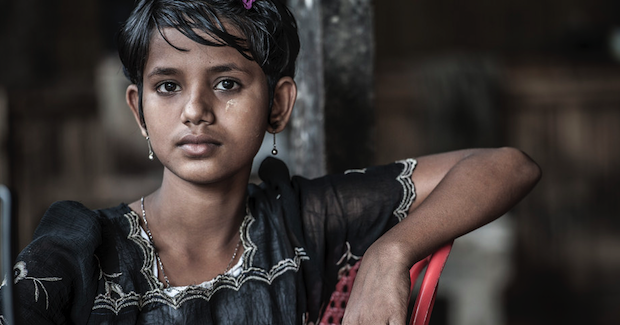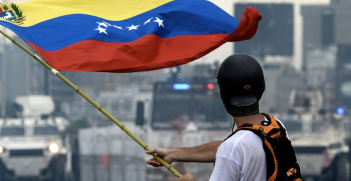ASEAN Fragmented on Rohingya Crisis

Foreign ministers from the Association of South East Asian Nations met in Yangon late last year to discuss Myanmar’s Rohingya crisis. The meeting came after a series of NGO reports and a statement from the United Nations Human Rights Council citing brutal killings, rapes and the torching of Rohingya homes in the northern Rakhine state by Myanmar’s army. The reported persecution followed the coordinated killings of nine police officers on 9 October.
Out of the 10 countries that form the ASEAN bloc, Malaysia has always been extremely critical of the Myanmar government’s treatment of the Rohingya. In the wake of the increased violence in Rakhine state that sent hundreds of people fleeing across the border to Bangladesh, Malaysia pulled out of two friendly under-22 football matches with Myanmar.
Malaysian Foreign Minister Anifah Aman called the issue a matter of regional security and stability at the Association of South East Asian Nations (ASEAN) gathering. He urged the member states to coordinate humanitarian aid and provide help to investigate alleged atrocities committed against the Rohingya. Myanmar has continued to insist that the issue be treated as an internal matter and has allowed only a handpicked media delegation to visit the affected areas and report on the situation.
Malaysia’s recognition of the issue as a regional one marks a break with ASEAN members’ tradition of non-intervention in each other’s internal affairs. However, the outcome of the 19 December meeting was nothing but rhetorical; it did not go beyond Myanmar’s provision of humanitarian access to Rakhine and lip-service in the form of half-hearted measures to investigate the atrocities.
ASEAN’s collective failure to deal with the Rohingya crisis first became apparent with the relegation of the matter to the Bali process, which primarily deals with human trafficking. This raises the question of how an international forum could come to the rescue of the Rohingya as they are a stateless people and no government has yet claimed them. The Bali process fails to adequately cover the situations where the Rohingya may not have been trafficked.
Though ASEAN initially began as an economic bloc promoting the interests of businesses and investments in the region, it can no longer shy away from its responsibility to protect the human rights of people facing extreme adversity in the region. The ASEAN Charter was signed in 2008 to promote a commitment towards human security and human rights. The Charter subsequently enabled the establishment of the ASEAN Intergovernmental Commission on Human Rights (AICHR) in 2009 and the creation of the ASEAN Human Rights Declaration (AHRD) barely three years later. ASEAN cannot afford to turn a blind eye to humanitarian crises unfolding in the region as international pressure mounts and the effectiveness of the organisation comes under further scrutiny.
However, the response of the ASEAN members to the problem so far has been largely inconsistent, offering no pragmatic solution to the crisis. Despite the rhetoric of the Malaysian, Thai and Indonesian governments, none of the governments including Myanmar have ratified the 1951 Refugee Convention or the 1967 Protocol Relating to the Status of Refugees.
The reasons cited for non-ratification include a threat to national security, a potential increase in the number of refugees and asylum seekers thereby increasing the economic burden on the countries, and a threat to national social cohesion. Nations yet to ratify these conventions have cited an unsubstantiated linkage of refugees and asylum seekers to the drug trade as a threat to national security.
Despite the efforts of these countries to host refugees and provide assistance, their failure to develop a human security framework to address security concerns—coupled with their complicity in boat push-backs that leave refugees stranded at sea—runs counter to the so-called positive developments of the recent summits. These fluctuating domestic attitudes towards refugees and migrants inform the ad hoc institutional treatment of the Rohingya, when it should instead be informed by coherent official state policies determined by domestic legal frameworks.
Inadequate pressure on the Myanmar government to involve ASEAN is another factor that should be considered. Myanmar’s reluctance to treat the issue as ASEAN’s collective responsibility and rather as interference in its domestic affairs is the first roadblock that needs to be eliminated. Myanmar should draw lessons learnt from Cyclone Nargis of 2008 when, despite initial reluctance by the government, it successfully teamed up with ASEAN and the UN to coordinate massive international humanitarian assistance for the cyclone survivors.
The lack of a coordinated response to deal with the crisis, a lack of pressure on the Myanmar government and bickering over the semantics of whether the Rohingya be treated as refugees, asylum seekers or migrants, have led to opportunistic back-pedalling on the issue by the ASEAN members. Myanmar, Indonesia, Malaysia and Thailand must approach the problem with a coherent framework and a focus on human rights. Only a coherent regional framework could inhibit the variable nature of state responses and help ASEAN to deal with the crisis more effectively.
Rashi Yadav is a masters graduate in international relations from the University of Melbourne and a former editor of Australian Outlook.
This article is published under a Creative Commons Licence and may be republished with attribution.





